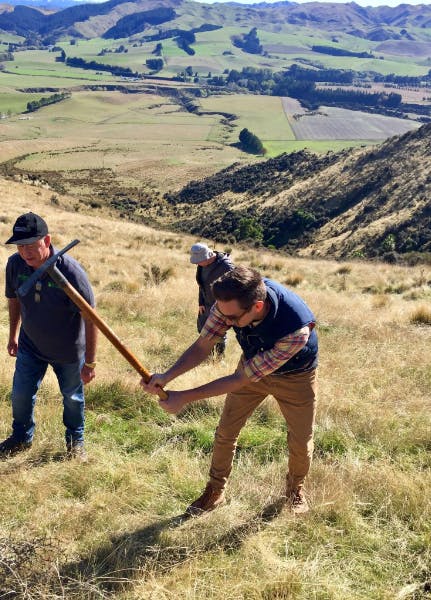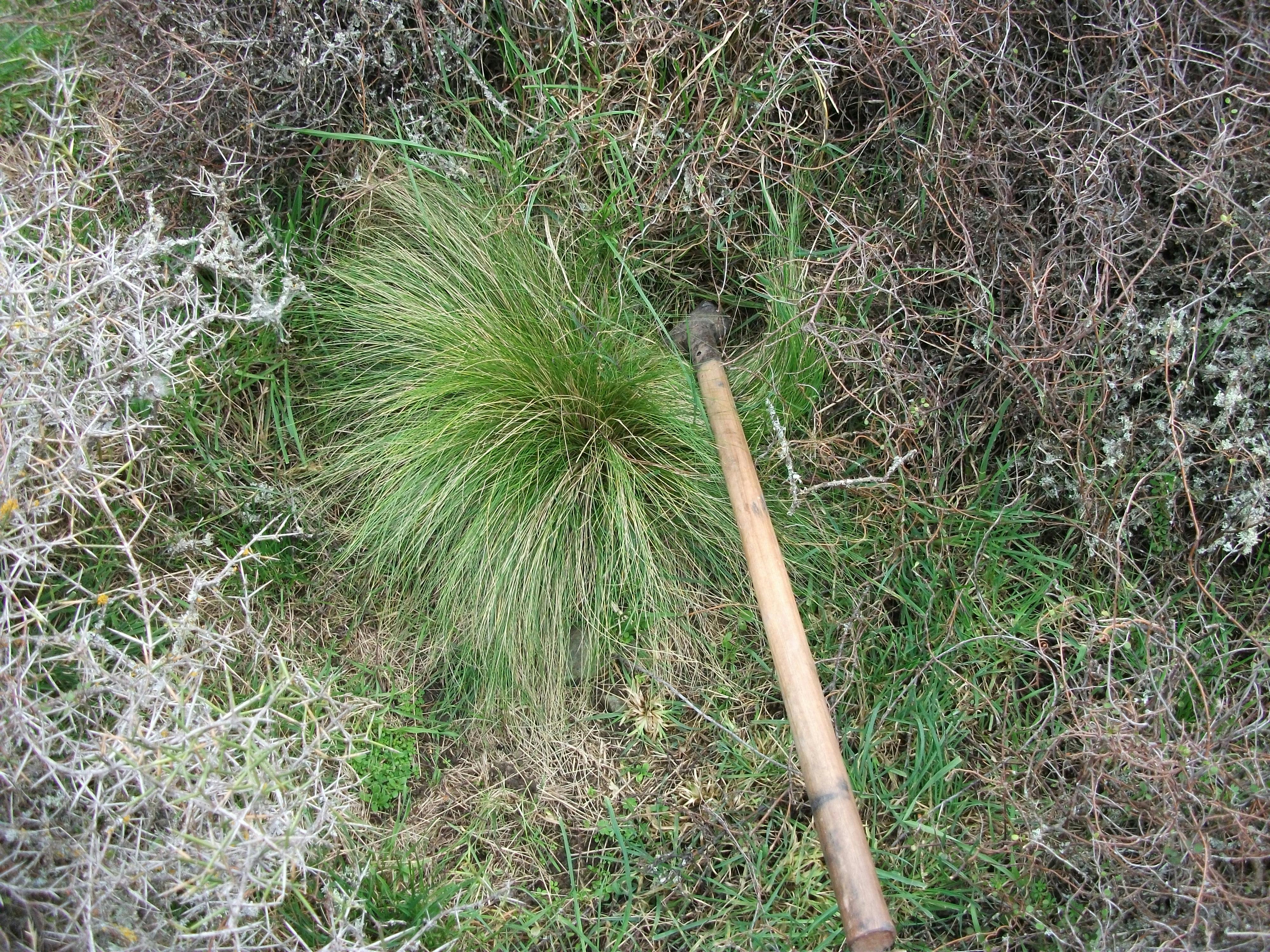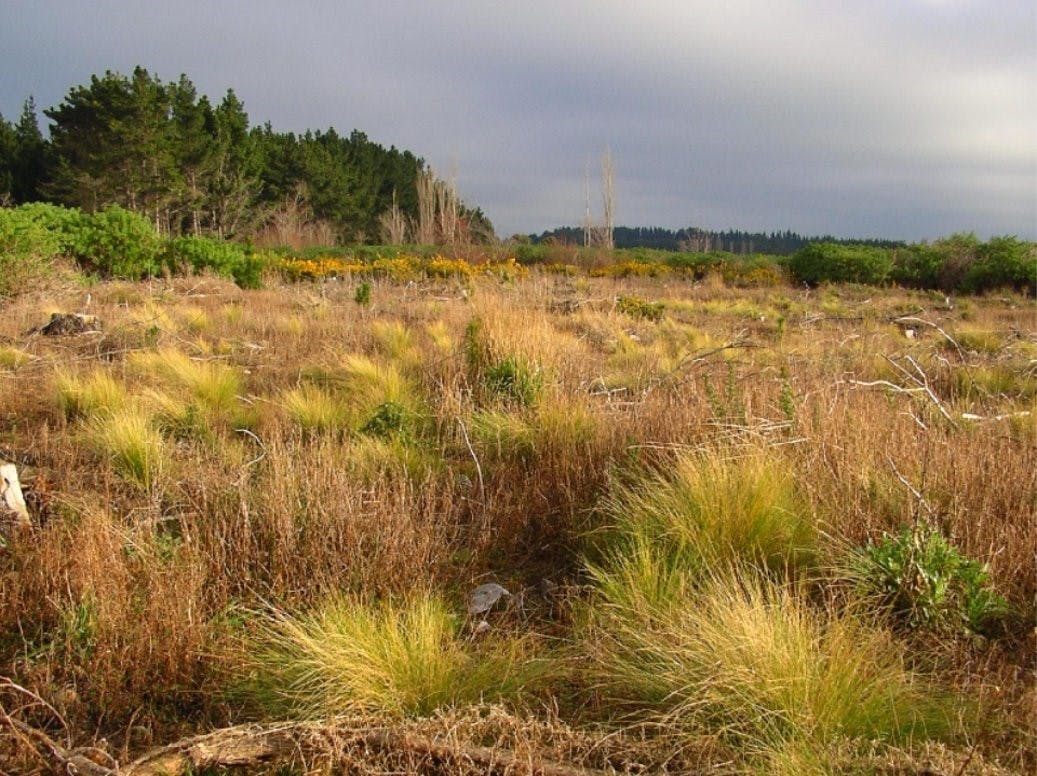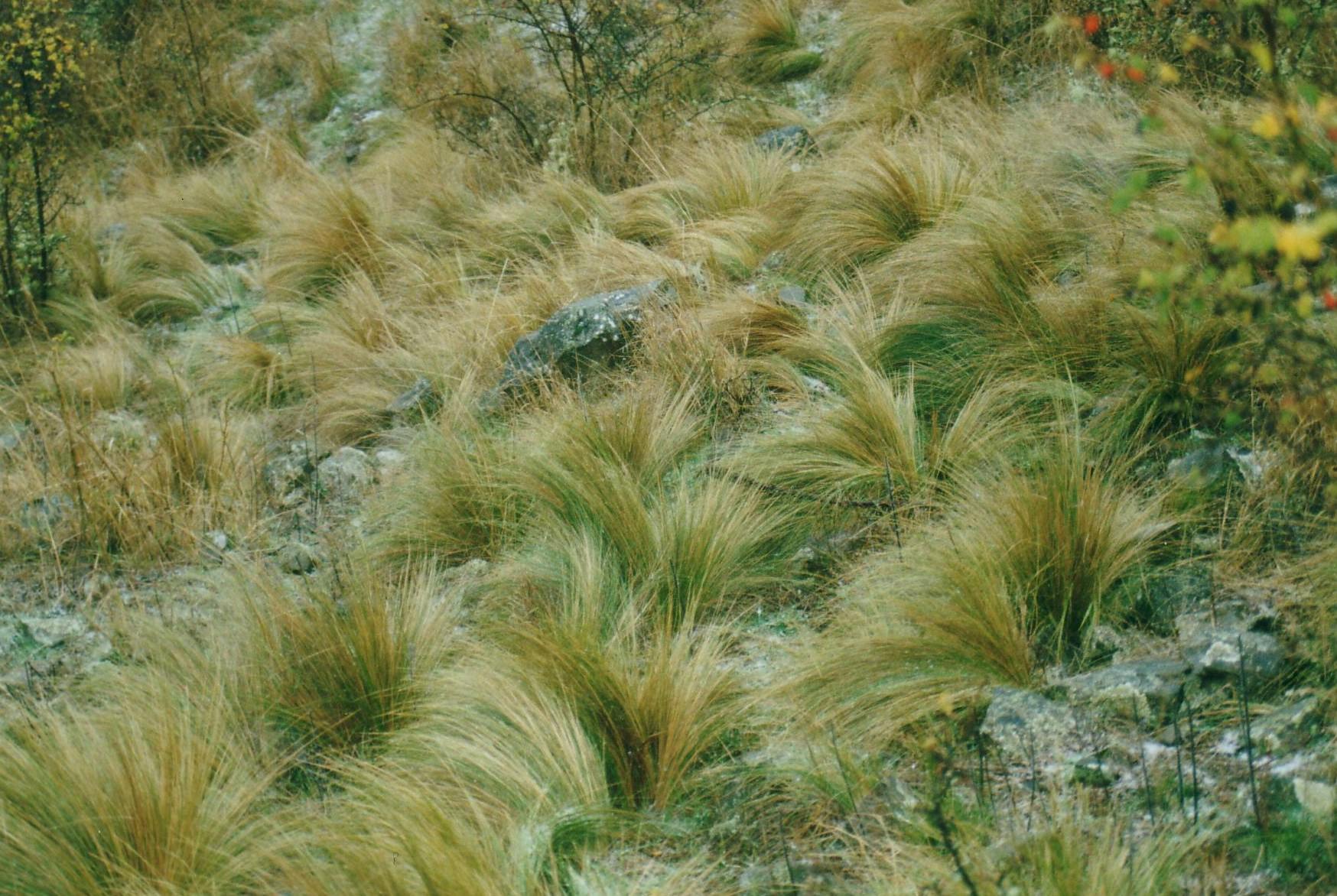Nassella tussock control programme - a new approach
This page has now closed.
In March and April 2021 we ran three all-day workshops with members of the community who volunteered to be part of a co-design process for the 2021/22 nassella tussock control programme.
The aim was to improve our existing process to ensure that it reflects what landowners feel is important in terms of timing and priorities, while also adhering to our regulatory responsibilities.
These workshops were based on some core principles — listening to the community, transparency, constructive discussion, the willingness to be creative and innovative, and the commitment to working in partnership.
We want the widest number of people who are interested to be involved in this process of change. To help us do this, we will use this page to;
provide updates on how the workshops are progressing,
seek feedback on ideas proposed as part of the workshop,
provide a forum for community discussion and idea-sharing, and
provide links to relevant information and documents.
Please share the link to this page, and check back here for updates.
In March and April 2021 we ran three all-day workshops with members of the community who volunteered to be part of a co-design process for the 2021/22 nassella tussock control programme.
The aim was to improve our existing process to ensure that it reflects what landowners feel is important in terms of timing and priorities, while also adhering to our regulatory responsibilities.
These workshops were based on some core principles — listening to the community, transparency, constructive discussion, the willingness to be creative and innovative, and the commitment to working in partnership.
We want the widest number of people who are interested to be involved in this process of change. To help us do this, we will use this page to;
provide updates on how the workshops are progressing,
seek feedback on ideas proposed as part of the workshop,
provide a forum for community discussion and idea-sharing, and
provide links to relevant information and documents.
Please share the link to this page, and check back here for updates.
This page has now closed.
-
Update 5: 29 July 2021
Following the community workshops held in March and April, Environment Canterbury’s biosecurity team have been working towards the implementation of several new approaches in the nassella control programme, including encouraging land occupiers to undertake their control work earlier in the year, and for Environment Canterbury to adapt its communication approach with land occupiers affected by nassella tussock and other pests.
Since the workshops were held, Environment Canterbury’s main area of focus has been enabling land occupiers to complete nassella control earlier in the year, if possible.
- An email was sent to nassella-affected properties, specifically outlining that they can request an early inspection, and
- Land occupiers have been contacted directly by biosecurity officers to ascertain if they would be willing to have an early inspection, and when that might be.
Rationale for land occupiers to complete their control programme earlier in the year:
- While the current compliance dates remain the same (30 September for most of the region, and 31 October for high density properties in Hurunui), it may benefit land occupiers to undertake this work at a different time of year. This will also enable Environment Canterbury to focus on emerging threats, such as Chilean needle grass, reducing the chance of other pests becoming an issue for land occupiers.
- We know that contractors showing up on time has been an issue for a number of land occupiers. By spreading your control work throughout the year, this also spreads the workload for your contractors. It will also enable you to work around on-farm activities such as lambing, which can clash with compliance dates in some areas.
- Land occupiers who complete their control work and are inspected prior to 20 September 2021 will be eligible for a free additional inspection, should they initially fail to meet the requirements of the rules. It is important to note that if you are inspected early and pass, then that is a pass for the year (and there won’t be a need for Environment Canterbury to inspect again). Any decision made will stand until the next year’s inspection, regardless of what an officer may see if they’re on the property for another purpose on another date.
If you would like to complete your control work early and have an early inspection, please contact Environment Canterbury on 0800 324 636 or email Biosecurity@ecan.govt.nz
The biosecurity team will continue to work with land occupiers to encourage and implement early nassella control work and inspections. In addition, the following recommendations from the workshops will also be implemented by Environment Canterbury:
- Having one biosecurity officer that land occupiers can communicate and build a relationship with i.e. assigning officers to geographic areas
- Continue to work on culture and associated training for biosecurity officers including how to communicate effectively with the rural community, particularly when discussing rules and regulations
- Evaluating biosecurity officer inspections to ensure the rules are applied consistently.
Environment Canterbury will continue to keep you updated as these items progress. Further updates will also be coming out shortly via the Nassella News and nassella management forums.
You can expect to see an increase in communication and transparency regarding nassella tussock going forward.
Thanks again to all who volunteered their time to attend the workshops, and we hope to gain more feedback from you once these changes are put in place.
-
Update 4: 6 May 2021
Our third and final workshop was held on 23 April, where we focused on refining the ideas discussed in our previous workshops.
The discussions we’ve had with a number of you over these three sessions have been incredibly insightful and valuable. Once again, we sincerely thank all of you that have been part of this co-design process.
To wrap up our workshops, we did a final review of the current approach to nassella tussock management and compared it with a proposed new approach, as developed in previous workshops.
By the end of the session, we came away with a better proposed approach which we now plan to share with our biosecurity officers and senior staff. We are putting together a programme to ensure appropriate training, communication and implementation is undertaken to enable us all to be successful in delivering the new approach.
We will post a further progress update to this page in due course.
In the meantime, if you have any further questions or ideas, you can continue to contribute these using the Discussion, Questions, and Ideas tabs.
-
Update 3: 16 April 2021
Workshop 2 was held on 9 April, and it was a great opportunity to continue some productive discussions around nassella management. Thanks again to those of you that participated – your time and valuable contributions are very much appreciated.
You can now view a summary of the progress made during Workshop 2, under ‘Documents’ on the right-hand side of our nassella tussock homepage.
Once again, we’re keen to get feedback from as many of you as possible to help shape our co-designed nassella season plan for 2021/22.
To help with this, we have created a brief survey with several questions that came up during discussions in Workshop 2. This survey will close at 7am on Thursday 22 April, ahead of Workshop 3 on Friday 23 April.
Please also continue adding your thoughts to the Discussion, Questions, and Ideas tabs. We’d also appreciate if you could encourage your friends, family and community members to have their say by sharing the link to the nassella tussock page.
-
Update 2: 1 April 2021
Workshop 1 was held on 19 March, and went really well; we are very grateful to those community members who gave their time and shared their expertise to make the first workshop such a success.
We have prepared a summary of what we learned during Workshop 1 - it is located under the "Documents" heading on right-hand-side of this page.
Taking what we learned in Workshop 1, we are moving towards the creation of a co-designed nassella season plan for 2021. But we want to hear from as many people in the community as possible to get the broadest view of what people think and what the issues are.
To help us do that, we have created the quick poll (the tab next to this one), which asks you to answer yes/no to seven statements that came out of Workshop 1. This will help us deepen our understanding of the issues that were raised during the workshop. Please also add your thoughts to the discussion and ideas tabs.
Finally, please encourage your friends, family and community members to also have their say by sharing the link to this page.
-
Update 1: 15 March 2021
We are planning for the first of the three workshops, which will be held on 19 March 2021 (unfortunately delayed from 5 March due to COVID alert levels) in Amberley. Participants will receive an information pack in advance of the workshop, the aim of which is to listen to ideas and concerns arising from nassella control.
We will report back here on how things went, any ideas raised, and what workshop 2 might focus on.
Key contacts
-
CD
-
BT
Email biosecurity@ecan.govt.nz
Workshop dates
-
19 March 2021
-
09 April 2021
-
23 April 2021





